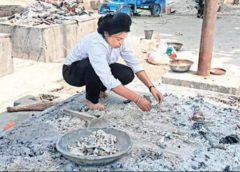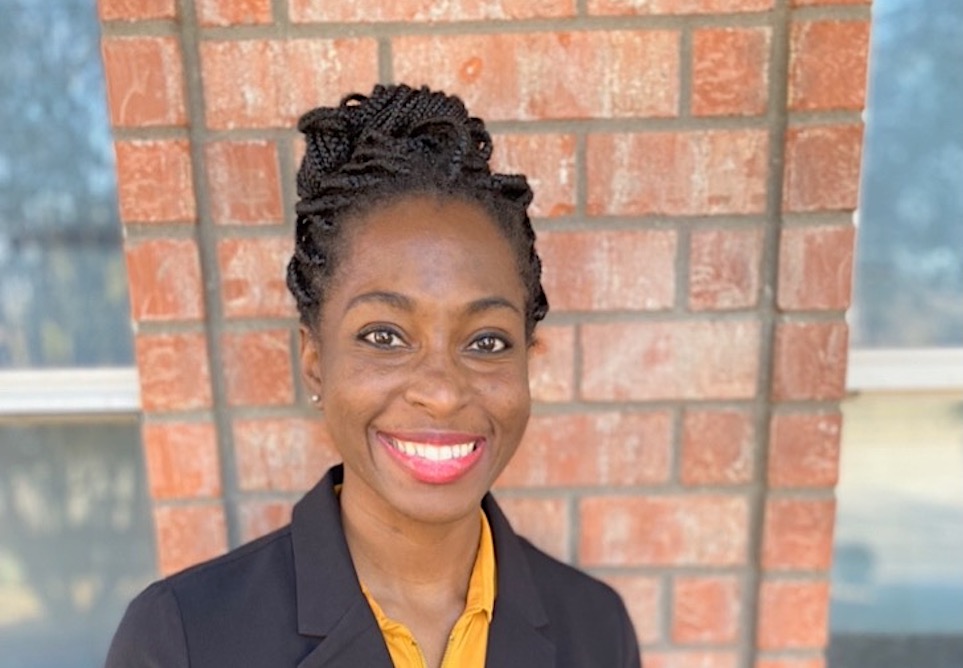
A mission to ensure honour for the dead | India News
[ad_1]
MUZAFFARNAGAR: Shalu Saini, 37, can’t forget the day when she saw a body lying unattended in her Muzaffarnagar neighbourhood during the peak of the pandemic.
“He was an old man. His kin had either no money to cremate him or were too afraid to come out for the last rites with Covid raging all around,” she told TOI, remembering the time. “For hours the body lay in the open as an overburdened health infrastructure was unable to do much. When the entire day passed and no one bothered, I could not stop myself and came out.”
That was the first body Saini, a single mother of two, cremated. She would cremate 200 more, all alone, in those two raging years of the virus when dozens of bodies were being abandoned even by family.
The cost of cremation was always high, she said, adding that in 2020, it went up to about Rs 5,000 for a single funeral. “The families were so helpless. It was peak Covid months, people had lost jobs, and there was a shortage of wood.”
Slowly as Covid’s killing run waned, people began tipping her off about “abandoned bodies”. Today the cost of a funeral on an average in Muzaffarnagar is around Rs 4,000. “But that’s still a lot of money, right?” Saini smiled. However, as stories about her good work spread, people, many of them anonymous, began helping her with money.
She has now become a messiah for the poor – and the dead. “I get calls from the mortuary, police, NGOs, slums and crematoriums. It’s a spiritual thing for me, what I do… connects me to the almighty,” she said.
Saini, who runs a small garment shop, said, “I’ve been a single woman since 2013 and suffered a lot in life”. For her children Sakshi, 15, and Sumit, 17, her work is an inspiration and is “priceless”.
Her neighbours see her as a shining light too. “She not only helps the living when they are unable to gather money to give their loved ones a final goodbye, she also ensures the dead get the honour and respect they deserve,” said Sonu Sharma, one of her neighbours.
Acknowledging her service, Muzaffarnagar ADM Narendra Bahadur Singh said, “She also supports us in various other ways. At times by spreading awareness on social issues”.
Kallu Yadav, in-charge of one of Muzaffarnagar’s cremation grounds, said, “Saini has been coming here since the start of Covid. Whenever she gets news of unclaimed bodies, she is the first one to turn up. She makes all the arrangements and performs the final rites”
And for people like Nikhil Jangra, she is “an angel in human avatar”. A resident of Rohtak in Haryana, Jangra’s father was cremated by Saini during the kanwar yatra this time. “My father, 55, died in an accident in Muzaffarnagar while returning home. His identity could not be immediately established. Saini did all the rites,” Jangra said.
It was never a cakewalk though. “For a woman, that too a single mother, nothing is easy,” she said. “There used to be days when people, including my relatives, reminded me that being a woman I should not get involved in cremation work. Many women aren’t even allowed near cremation grounds.”
Saini has by now helped cremate over 500 bodies. And continues to make it her mission. “A man struggles from cradle to grave but at least after he dies his mortal remains must be disposed of in a dignified manner. It is our duty,” Saini said.
“He was an old man. His kin had either no money to cremate him or were too afraid to come out for the last rites with Covid raging all around,” she told TOI, remembering the time. “For hours the body lay in the open as an overburdened health infrastructure was unable to do much. When the entire day passed and no one bothered, I could not stop myself and came out.”
That was the first body Saini, a single mother of two, cremated. She would cremate 200 more, all alone, in those two raging years of the virus when dozens of bodies were being abandoned even by family.
The cost of cremation was always high, she said, adding that in 2020, it went up to about Rs 5,000 for a single funeral. “The families were so helpless. It was peak Covid months, people had lost jobs, and there was a shortage of wood.”
Slowly as Covid’s killing run waned, people began tipping her off about “abandoned bodies”. Today the cost of a funeral on an average in Muzaffarnagar is around Rs 4,000. “But that’s still a lot of money, right?” Saini smiled. However, as stories about her good work spread, people, many of them anonymous, began helping her with money.
She has now become a messiah for the poor – and the dead. “I get calls from the mortuary, police, NGOs, slums and crematoriums. It’s a spiritual thing for me, what I do… connects me to the almighty,” she said.
Saini, who runs a small garment shop, said, “I’ve been a single woman since 2013 and suffered a lot in life”. For her children Sakshi, 15, and Sumit, 17, her work is an inspiration and is “priceless”.
Her neighbours see her as a shining light too. “She not only helps the living when they are unable to gather money to give their loved ones a final goodbye, she also ensures the dead get the honour and respect they deserve,” said Sonu Sharma, one of her neighbours.
Acknowledging her service, Muzaffarnagar ADM Narendra Bahadur Singh said, “She also supports us in various other ways. At times by spreading awareness on social issues”.
Kallu Yadav, in-charge of one of Muzaffarnagar’s cremation grounds, said, “Saini has been coming here since the start of Covid. Whenever she gets news of unclaimed bodies, she is the first one to turn up. She makes all the arrangements and performs the final rites”
And for people like Nikhil Jangra, she is “an angel in human avatar”. A resident of Rohtak in Haryana, Jangra’s father was cremated by Saini during the kanwar yatra this time. “My father, 55, died in an accident in Muzaffarnagar while returning home. His identity could not be immediately established. Saini did all the rites,” Jangra said.
It was never a cakewalk though. “For a woman, that too a single mother, nothing is easy,” she said. “There used to be days when people, including my relatives, reminded me that being a woman I should not get involved in cremation work. Many women aren’t even allowed near cremation grounds.”
Saini has by now helped cremate over 500 bodies. And continues to make it her mission. “A man struggles from cradle to grave but at least after he dies his mortal remains must be disposed of in a dignified manner. It is our duty,” Saini said.
[ad_2]
Source link


